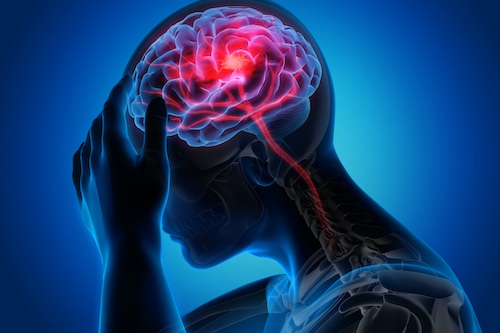Know the Warning Signs of Neurological Problems
The nervous system controls how your body moves, thinks, and feels. When it stops working as it should, the signs may be easy to overlook. Symptoms like muscle weakness, numbness, or memory problems may seem minor but can signal serious neurological disorders. Ignoring these early signs can lead to long-term damage or life-threatening conditions.
In this blog, we cover four key signs of neurological problems you should never ignore and explain why working with an experienced Atlanta neurologist, much like relying on a skilled federal crimes lawyer for serious legal matters, is critical for protecting your health.
Sign #1: Persistent Numbness or Tingling in Limbs
Numbness or tingling in the arms, hands, legs, or feet can signal underlying neurological problems that need medical attention.
What This Symptom Means
Numbness and tingling often come from issues within the nervous system, especially the peripheral nerves or spinal cord. These sensations may feel like pins and needles, or a loss of feeling in a specific body part. While temporary numbness can result from pressure on a nerve, persistent symptoms may point to a more serious neurological condition.
Possible Causes
Several neurological disorders are linked to these symptoms. Carpal tunnel syndrome can compress the median nerve in the wrist. Peripheral neuropathy, often related to diabetes or autoimmune conditions, affects the peripheral nervous system. Multiple sclerosis (MS), a disorder of the central nervous system, can also produce numbness, tingling, and muscle spasms as early signs.
Why It Matters
Persistent sensory changes may indicate damage to the brain and spinal cord or nerve pathways. Ignoring them can lead to long-term impairment or loss of function. These symptoms are part of many complex neurological conditions, where early diagnosis improves outcomes.
When to See a Specialist
If numbness or tingling lasts more than a few days, spreads, or is paired with weakness or pain, consult a healthcare provider. An Atlanta neurologist can perform tests to find the cause and recommend a treatment plan to protect your neurological health.
Sign #2: Sudden or Severe Headaches
A sudden or intense headache may be a sign of a serious neurological problem that should not be ignored.
What This Symptom Means
While common headaches often pass with rest or medication, a sharp or unusual headache can signal a deeper issue within the central nervous system. This type of pain may be a response to pressure, swelling, or abnormal activity in the brain and spinal cord.
Possible Causes
Severe headaches are associated with several neurological disorders. A spinal cord injury, brain tumor, or aneurysm can trigger intense pain. Multiple sclerosis (MS) may also present with pressure-like head pain. In some cases, changes in the autonomic nerves can affect blood flow, resulting in chronic or sudden headaches.
Warning Signs to Watch
Symptoms such as blurred vision, slurred speech, numbness, or mental status changes alongside a headache may indicate a life threatening condition. These signs require fast medical attention. If the headache disrupts sleep or occurs with seizures, cognitive decline, or balance problems, it should be taken seriously.
When to See a Specialist
Do not wait for the pain to return or worsen. Contact an Atlanta neurologist if headaches are sudden, frequent, or feel different from past headaches. Early evaluation and a clear diagnosis can help rule out or manage serious neurological diseases with appropriate treatment options.
Sign #3: Muscle Weakness or Spasms
Muscle weakness or sudden spasms can point to damage in the nervous system and should be examined without delay.
What This Symptom Means
Weakness or loss of strength in a body part may indicate a problem in the brain, spinal cord, or peripheral nerves. Muscle spasms often occur when nerve signals misfire, causing muscles to contract without control. These symptoms affect mobility, coordination, and daily function.
Possible Causes
Conditions like amyotrophic lateral sclerosis (ALS), multiple sclerosis (MS), or Parkinson’s disease commonly present with these symptoms. A spinal cord injury or inflammation can also interrupt signals between the central nervous system and the muscles. Over time, these symptoms may become more severe without proper care.
What to Watch
Muscle weakness that develops without clear cause, or spasms that interfere with movement, may signal a serious neurological condition. Other signs may include slowed movements, numbness, or changes in muscle tone. These symptoms may appear on one side of the body or affect both sides depending on the disorder.
When to See a Specialist
Do not ignore repeated weakness or involuntary movements. A consultation with an Atlanta neurologist can help identify the source and recommend a clear treatment plan. Early testing can prevent permanent damage and improve outcomes for patients with neurological problems.
Sign #4: Changes in Mental Status or Memory
Shifts in memory, thinking, or behavior may signal serious neurological problems that require medical evaluation.
What This Symptom Means
The brain controls memory, mood, and judgment. When parts of the central nervous system are damaged or affected by disease, changes in mental clarity or personality can appear. These changes may be subtle at first, such as forgetfulness or confusion, but they often progress.
Possible Causes
Alzheimer’s disease is a common cause of memory decline, especially in older adults. Other causes include epilepsy, multiple sclerosis, and certain neurological disorders that affect the brain’s structure or function. Infections, spinal cord damage, or medication side effects may also lead to altered mental status.
What to Watch
Symptoms can include brief lapses in memory, poor concentration, mood swings, or changes in sleep patterns. You may notice that the person struggles with daily tasks, forgets names or dates, or becomes easily irritated. These signs vary but always point to disrupted neurological health.
When to See a Specialist
Cognitive changes should not be dismissed as normal aging. If symptoms worsen or affect daily life, contact an Atlanta neurologist. Early diagnosis allows for better management and may slow the progression of certain neurological diseases. An effective treatment plan can help preserve quality of life.
Contact an Experienced Atlanta Neurologist ASAP!
Ready to take action on concerning signs of neurological problems? Our team at Georgia Spine & Orthopaedics combines expert neurologists, board-certified orthopedic surgeons, and chiropractic specialists to deliver fast, accurate diagnosis and effective treatment options.
Contact us at 678-929-4494 for a free case consultation today!








